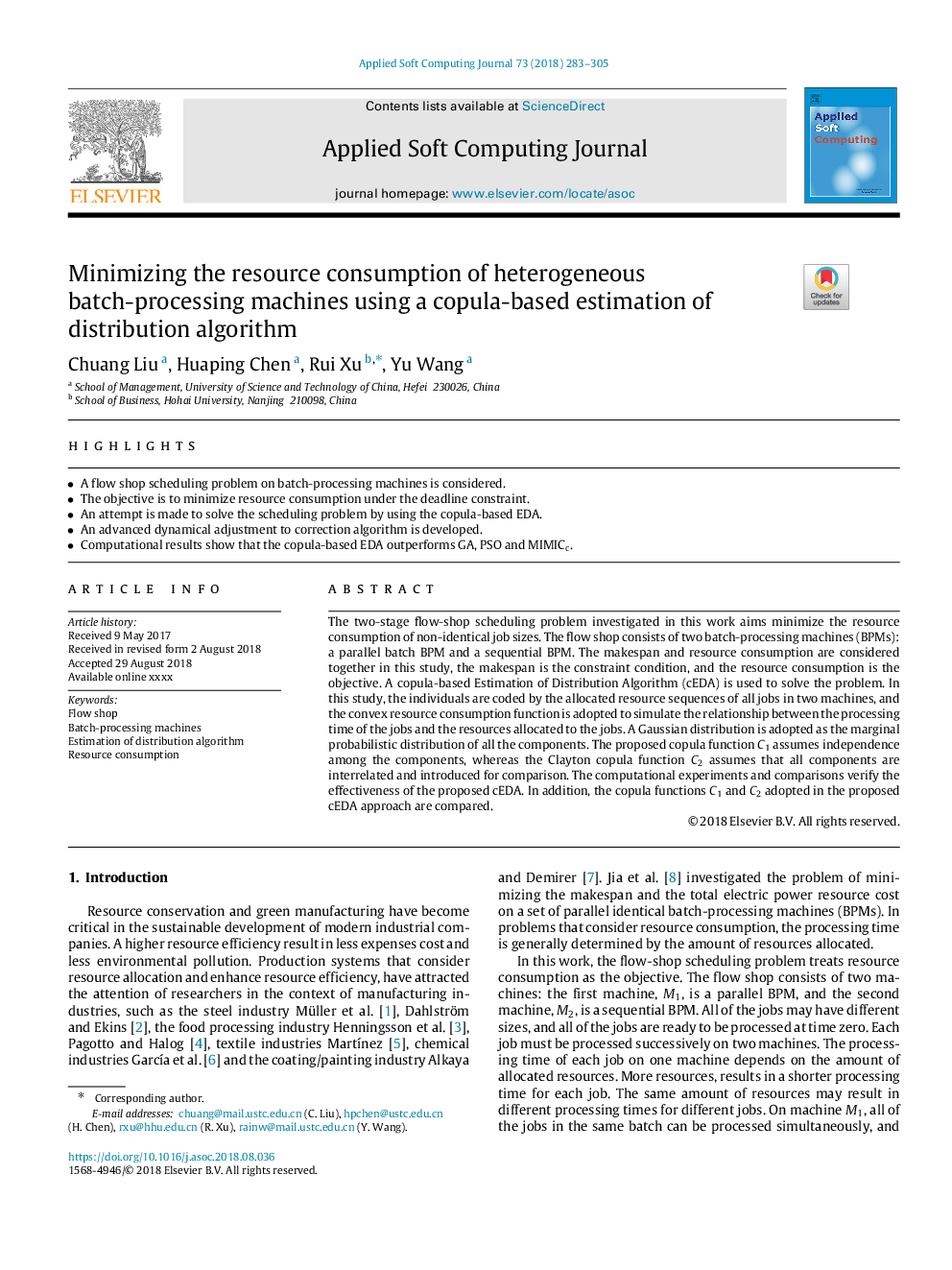| Article ID | Journal | Published Year | Pages | File Type |
|---|---|---|---|---|
| 10139468 | Applied Soft Computing | 2018 | 23 Pages |
Abstract
The two-stage flow-shop scheduling problem investigated in this work aims minimize the resource consumption of non-identical job sizes. The flow shop consists of two batch-processing machines (BPMs): a parallel batch BPM and a sequential BPM. The makespan and resource consumption are considered together in this study, the makespan is the constraint condition, and the resource consumption is the objective. A copula-based Estimation of Distribution Algorithm (cEDA) is used to solve the problem. In this study, the individuals are coded by the allocated resource sequences of all jobs in two machines, and the convex resource consumption function is adopted to simulate the relationship between the processing time of the jobs and the resources allocated to the jobs. A Gaussian distribution is adopted as the marginal probabilistic distribution of all the components. The proposed copula function C1 assumes independence among the components, whereas the Clayton copula function C2 assumes that all components are interrelated and introduced for comparison. The computational experiments and comparisons verify the effectiveness of the proposed cEDA. In addition, the copula functions C1 and C2 adopted in the proposed cEDA approach are compared.
Related Topics
Physical Sciences and Engineering
Computer Science
Computer Science Applications
Authors
Chuang Liu, Huaping Chen, Rui Xu, Yu Wang,
